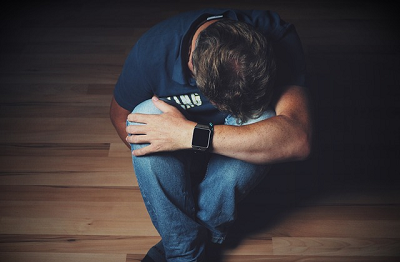Can Testicular Pain Be Related to Chronic Prostatitis?
Testicular pain is a common issue among men, often impacting their quality of life and mental health. The causes of testicular pain are varied and can include epididymitis, varicocele, testicular torsion, hernia, and trauma, among others.

However, many are unaware that chronic prostatitis can also be a significant cause.
Mechanisms of Testicular Pain Caused by Chronic Prostatitis
1. Neural Transmission
The prostate and testicles are part of the urogenital system, governed by the sympathetic and parasympathetic nervous systems. Inflammation of the prostate can stimulate nerve endings, transmitting pain signals to the testicles through neural pathways.
This type of pain is often described as a dull ache or discomfort and may be accompanied by pain in the perineum, groin, or lower abdomen.
2. Inflammation Spread
The prostate and epididymis are connected through the spermatic cord, allowing inflammation to spread from the prostate to the epididymis, causing epididymitis and subsequent testicular pain.
Chronic prostatitis often involves a high concentration of inflammatory factors in the prostatic fluid, which can travel through the spermatic cord, leading to secondary infections in the epididymis. In this situation, testicular pain is typically associated with epididymal swelling and tenderness.
3. Circulatory Disorders
Chronic inflammation of the prostate can lead to local circulatory disorders, affecting the blood supply to the testicles, resulting in hypoxia and nutritional deficiencies that cause pain and discomfort.
Patients with chronic prostatitis frequently experience prostate congestion and edema, which further impair the circulation in surrounding tissues. As the testicles are adjacent to the prostate, they are susceptible to these circulatory disturbances, leading to pain.
4. Reflex Pain
Chronic prostatitis can cause pelvic floor muscle tension and spasms through nerve reflexes, resulting in reflexive pain in the perineum and testicles.
This pain is often intermittent, worsening with activity or urination and possibly alleviating afterward. Reflex pain can extend beyond the testicles, affecting the entire pelvic region and causing widespread discomfort.
How to Alleviate Testicular Pain Caused by Chronic Prostatitis?
1. Antibiotics: Antibiotics can effectively eliminate bacteria in the prostate, reducing inflammation and alleviating testicular pain.
Patients should follow medical advice and adhere to the prescribed medication schedule to avoid the development of antibiotic resistance.
2. Alpha-Blockers: Alpha-blockers, such as tamsulosin, can relax the muscles of the prostate and bladder neck, improve urine flow, and reduce the symptoms of prostatitis, thereby indirectly alleviating testicular pain.
These medications are particularly suitable for patients experiencing lower urinary tract symptoms such as frequent and urgent urination.
3. Traditional Chinese Medicine: If antibiotics are ineffective, patients can consider taking Traditional Chinese Medicine, such as Diuretic and Anti-inflammatory Pill, which has the effects of promoting blood circulation and qi, relieving pain, diuresis, and gonorrhea. It can effectively treat chronic prostatitis and testicular pain.
Physical Therapy
1. Thermotherapy: Applying warm water bags or heating pads to the perineal area can promote blood circulation and reduce pain and discomfort.
2. Prostate Massage: Prostate massage can help expel prostatic fluid, alleviate prostatic congestion and inflammation, then reduce testicular pain.
3. Electrical Stimulation: Low-frequency electrical stimulation can relieve tension and spasms of the pelvic floor muscles, reducing pain. This treatment is usually administered in professional medical facilities.
Lifestyle Adjustments
1. Regular Sleep: Maintain good sleep habits, avoid staying up, and ensure adequate sleep. Sufficient rest can boost the immune system, helping the body combat inflammation and reduce pain.
2. Moderate Exercise: Regular exercise can promote blood circulation and enhance immunity. Activities such as walking, swimming, and yoga are recommended for their gentle nature.
3. Healthy Diet: Consume foods rich in fiber and vitamins while avoiding spicy, greasy foods and alcohol. High-fiber foods can improve digestion, reduce prostate irritation, and prevent testicular pain.
4. Smoking Cessation and Alcohol Moderation: Tobacco and alcohol can exacerbate inflammatory responses and should be avoided. Quitting smoking and limiting alcohol intake can reduce the burden on the prostate and help alleviate symptoms.
5. Reduce Prolonged Sitting: Sitting for extended periods increases pressure on the prostate. Hence, men should stand up and move around every hour, performing simple stretching exercises.
Recommended Readings:
Why Do Some Prostatitis Patients Experience Prolonged Erection?



